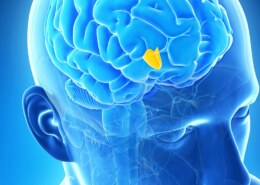Can The Endocrine System Maintain Homeostasis?
The endocrine system consists of ductless glands that release hormones into the bloodstream.
These hormones actuate homeostatic rfeedback loops that keep the body healthy and in balance. The endocrine system is closely associated with physiological processes in order to fulfill its functions.
The hypothalamus and pituitary gland are control centers that direct hormones to other glands and throughout the body.
Other major endocrine glands, including the thyroid, parathyroid, adrenal glands, and pineal gland, regulate levels of various substances in the blood, as well as metabolism, growth, the sleep cycle, and other processes.
Organs such as the pancreas also secrete hormones as part of the endocrine system. Secondary endocrine organs include the gonads, kidneys, and thymus.
Endocrine Glands
The main endocrine glands in humans are the pituitary gland, pineal gland, ovaries, testicles, pancreas, thyroid gland, parathyroid glands and adrenal glands.
Hypothalamic-pituitary complex in the brain is the main neural control center of all endocrine glands and systems.
Some organs in the body have secondary endocrine functions, such as the heart, gonads, bones, kidneys, and liver. In addition to their homeostatic functions, hormones coordinate growth, reproduction, and many other processes.
-
Hypothalamic-Pituitary Complex
This control center in the brain secretes hormones that have a direct effect on tissues and also secretes hormones that regulate the production and secretion of hormones in other glands.
It is also the main area where the chemical messages of the endocrine and nervous systems are coordinated. In other words, there are many examples where stimulus from the nervous system passes through this complex and is “translated” before hormones are released in response.
Hormones released by the hypothalamus and some of their effects:
Dopamine – modulates motor control centers (loss of dopamine leads to Parkinson’s disease).
Somatostatin – inhibits the release of growth hormone and thyroid-stimulating hormone.
Corticotropin-releasing hormone – causes release of adrenocorticotropic hormone from the pituitary gland in response to stress, which stimulates cortisol release.
Thyrotropin-releasing hormone – causes the release of thyrotropin from the pituitary gland, which stimulates the thyroid gland to release thyroxine and triiodothyronine, affecting metabolism throughout the body.
Hormones secreted by the pituitary gland and some of their effects:
Thyroid hormone – stimulates the thyroid gland to secrete thyroid hormone.
Antidiuretic hormone – causes reabsorption of water by the kidneys.
Oxytocin-causes uterine contractions during labor.
Melanocyte-stimulating hormone – stimulates melanin formation in melanocyte cells.



Leave an answer
You must login or register to add a new answer.